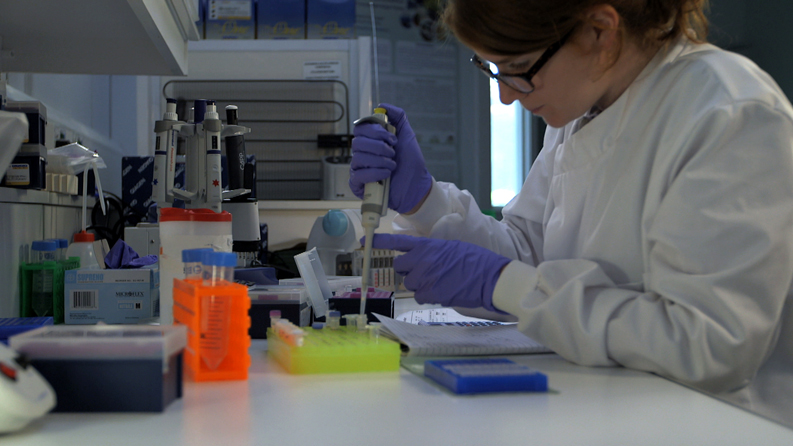Alison Roel is a product integrity manager in the MSC’s Standards team. She has been instrumental in the coordination of DNA testing on MSC labelled products. In late 2013, Alison appeared in an episode of the National Geographic Wild documentary series Mission: Save the Ocean discussing her work. Here she talks about her experience and why traceability is important.
What is ‘product integrity’?
These days people are more and more concerned about where their food comes from. As a product integrity manager, my job is to ensure that the MSC labelled fish and seafood that shoppers can trust that what they buy is what it should be: from a certified sustainable fishery.
The MSC requires that companies in the supply chains of certified fish are regularly audited to check that they segregate and clearly identify their certified stock. Recently in the UK there has been a lessening of consumer trust due to real concerns and controversy over meat substitution, so I am very proud that we have this additional assurance measure in place.
Why we do DNA testing and how
DNA testing of product samples is a way to check that our auditing system is working and that the MSC ecolabel is correctly identifying certified sustainable seafood. The samples are taken at random – some MSC and some non-MSC – and blind tested at independent laboratories, one of which was featured in the documentary programme.
Being filmed for Mission: Save the Ocean
Creating the programme was, like the DNA testing of MSC products itself, a lengthy process with an exciting outcome. I was filmed at the MSC London office checking samples of MSC certified products and then taking them to the laboratories. It was a very surreal experience being filmed, particularly walking through a crowded Kings Cross Station; while it may have seemed staged, these were the actual samples that I was taking up to the laboratories.
The interview was particularly nerve-wracking, but did give me the chance to talk about why this work, and the more general work of the product integrity team, is so important. Product integrity is not the first thing people associate with the Marine Stewardship Council, but it is essential in order for the ecolabel to have credibility.
Great results and more work to do
I was also apprehensive about the test results as we had no idea how favourable the outcome would be. It was the third time I had been involved in coordinating the MSC’s DNA testing, which has been going on since 2009, but so far results have been positive.
Fortunately, of the 320 samples examined, just 3 indicated mislabelling. So, over 99% of MSC products tested were correctly labelled. While this means some investigative work for us, the results gave us confidence that our chain of custody measures work. With other industry studies showing mislabelling levels closer to 10%, the level for MSC products was extremely low. Now we’ve started the process we plan to keep doing testing to see that this remains the case.
Spreading the word…
I’m very pleased to have been able to take part in this project. My family have always been interested in the work that I do at MSC; my dad often asks me technical questions and my husband is now much more aware of sustainable seafood options. My mum even accompanied me as I travelled to Edinburgh in the programme. Now a lot more people will learn about the work we do and why, and that the MSC ecolabel is a reliable mark of sustainability.

